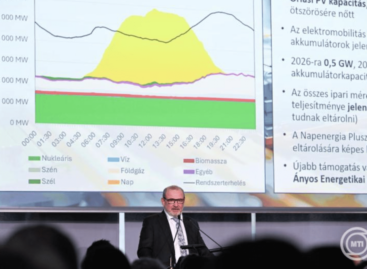Synthetic compounds in our food? The Association of Conscious Buyers is the domestic partner of an important EU project
ToxFree Life for All is the EU’s newly launched awareness raising campaign. Its aim is for consumers to reduce the risks of chemicals to their health and the environment. The focus of attention is on one of the chemicals produced in the largest quantities, bisphenols, which are very dangerous for our hormonal system. The Hungarian coordinator of the EU program until 2027 is the Association of Conscious Consumers, who want to ensure that at the EU level, substances that are proven harmful to the human body and classified as toxic cannot be included in consumer goods.
 Especially since the COVID outbreak, people are using more packaged and processed foods, more plastics, and more products in general, so our exposure to toxic chemicals, especially those that come into contact with food, remains a concern.
Especially since the COVID outbreak, people are using more packaged and processed foods, more plastics, and more products in general, so our exposure to toxic chemicals, especially those that come into contact with food, remains a concern.
It is of particular concern
Among these, the bisphenol compound family is one of the chemicals produced in the largest quantities, approximately more than 3 million tons of it are produced worldwide each year. It is used to produce polycarbonate plastics and epoxy resins. They are used in many areas of life, from technical goods to kitchen products and car parts, but they are also found in textile dyes in clothes and underwear. It is also used in large quantities by the food industry: food and beverage containers, soft drink and mineral water bottles, food barrels, plastic containers and other food packaging materials or as a coating for metal cans in epoxy resin.
Bisphenols have become the focus of attention because they can dissolve from the packaging during use, and in addition, prolonged storage, heating, sunlight, and microwaves can even increase the amount that dissolves. In addition to the original bisphenol-A (BPA) compound, new substances have also appeared, which the industry uses as a replacement in ever-increasing quantities due to legal bans: such as bisphenol-S and bisphenol-F. The European Chemicals Agency (ECHA) classifies BPA, BPS and BPF as “substances of very high concern”.
Related news
The economic sentiment index deteriorated in the euro area and the EU in February, but improved in Hungary
🎧 Hallgasd a cikket: Lejátszás Szünet Folytatás Leállítás Nyelv: Auto…
Read more >EU adopts rule to prevent destruction of unsold clothing
🎧 Hallgasd a cikket: Lejátszás Szünet Folytatás Leállítás Nyelv: Auto…
Read more >The EU’s 2050 carbon neutrality targets are unrealistic
🎧 Hallgasd a cikket: Lejátszás Szünet Folytatás Leállítás Nyelv: Auto…
Read more >Related news
Historic price reduction at ALDI
🎧 Hallgasd a cikket: Lejátszás Szünet Folytatás Leállítás Nyelv: Auto…
Read more >








